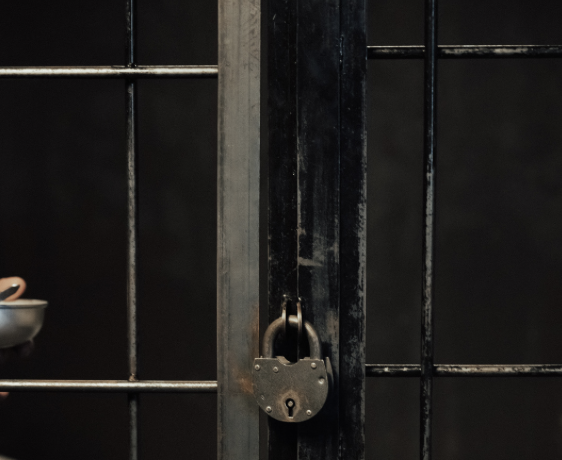The Covid-19 pandemic left a profound impact on societies worldwide. One of the most affected yet often overlooked groups were the AICs [Adults in custody] in the Oregon state prison system. The pandemic’s rapid spread within the prison walls led to unpredictable and extreme measures that included heavy lockdowns, which exacerbated the already harsh conditions of incarceration. Stressful isolation, the sickness itself as well as the possibility of death, all became a recurring theme during this harsh period. All of this combined created a very traumatic environment for AICs.
Isolation is an intrinsic part of prison life, but the pandemic lockdown intensified the misery to unprecedented levels. As it is, the routine of prison life, already restrictive, became even more confined. Social visits, which provide a crucial link to the outside world and a sense of normalcy, were abruptly halted. Along with recreational events, educational programs and work assignment duties; what gives an AIC a refreshing break from stale-bread prison life was suspended indefinitely. Every AIC was confined to their cells, or bunk areas, for 24 hours a day with no movement at all. These restrictive procedures created a sense of uncertainty, despair and extreme duress with no mention when this would end. No lifeline was present.
The psychological impact of this enforced isolation lockdown did take a toll on every AIC that lived through this horrendous period. Existing mental health issues became aggravated due to this extreme isolation. Anxiety and depression compounded with feelings of hopelessness as well as abandonment went through the roof, which was tearing people apart. There were reports of increased rates of self harm and violence against other AICs throughout the Oregon prison system. Things were not getting better. Improper mental health support due to the lack of D.O.C. [Department of Corrections] staff during these long-term lockdowns worsened the situation, leaving many AICs to struggle alone with their deteriorating mental states. All of this showed that prolonged isolation can tax one’s mental health situation. It cannot be overstated.
The overcrowded and closed confines of every Oregon state prison became a hotspot for heavy Covid outbreaks. AICs live in very close quarters at any given time. Two people are either housed in a tiny cell within a unit of 300 to 400 AICs, or a dorm that would house 100 to 200 AICs. Once the virus entered the prison system, it burned through the general population units like wildfire. It became apparent rather quickly that the health infrastructure within each state prison was not equipped to handle any of these heavy outbreaks.
Early on, enhance this with out of control overcrowded conditions, limited access to PPE [Personal Protection Equipment], inadequate medical care management as well as heavy staff shortages. All of this turned the prison into a breeding ground for Covid infections. Moreover, it portrayed the obvious, that the medical care facilities in each and every prison was extremely dysfunctional to begin with. AICs faced the constant threat of illness, which aggravated their sense of helplessness and fear due to not receiving timely or adequate medical care. Incarceration should include rehabilitation and proper care, not neglect, sickness, death.
The most tragic consequence of the Covid-19 pandemic within the Oregon prison system was the death of fellow AICs. This virus claimed the lives of 52 incarcerated souls, some of which were serving lengthy sentences and some that were about to go home. The deaths of these fellow AICs was a painful gut-shot blow to all of us living in general population. These AICs were our friends and companions who shared in the struggle of incarceration.
We should also consider the families of these lost souls who were waiting for their loved ones to come home. Now, they too, share in the pain of grief and loss. The inability to properly mourn, or pay their respect to the deceased due to the lockdown restrictions surely added to the overall trauma. For AICs, this compounded their sense of abandonment and further deteriorating mental health.
Furthermore, the prison staff themselves were also grappling with the virus’s impact, as they faced the challenges of maintaining order and providing care amidst their fears and losses. The overall emotional toll on both AICs and staff created a highly charged and stressful environment. In all, 3 ODOC [Oregon Department Of Correction] staff members succumbed to the virus during the pandemic.
The Covid-19 lockdown was a deeply traumatic time for AICs in the Oregon prison system. This period highlighted all the vulnerabilities within the prison system, especially in terms of healthcare and mental health support. As we move forward, it will be crucial to address these gaps so as to ensure that every AIC receives the care and support they need during incarceration, particularly in times of extreme crisis.






1 Comment
Catherine palmer
November 17, 2024 at 7:00 amAmazing work!